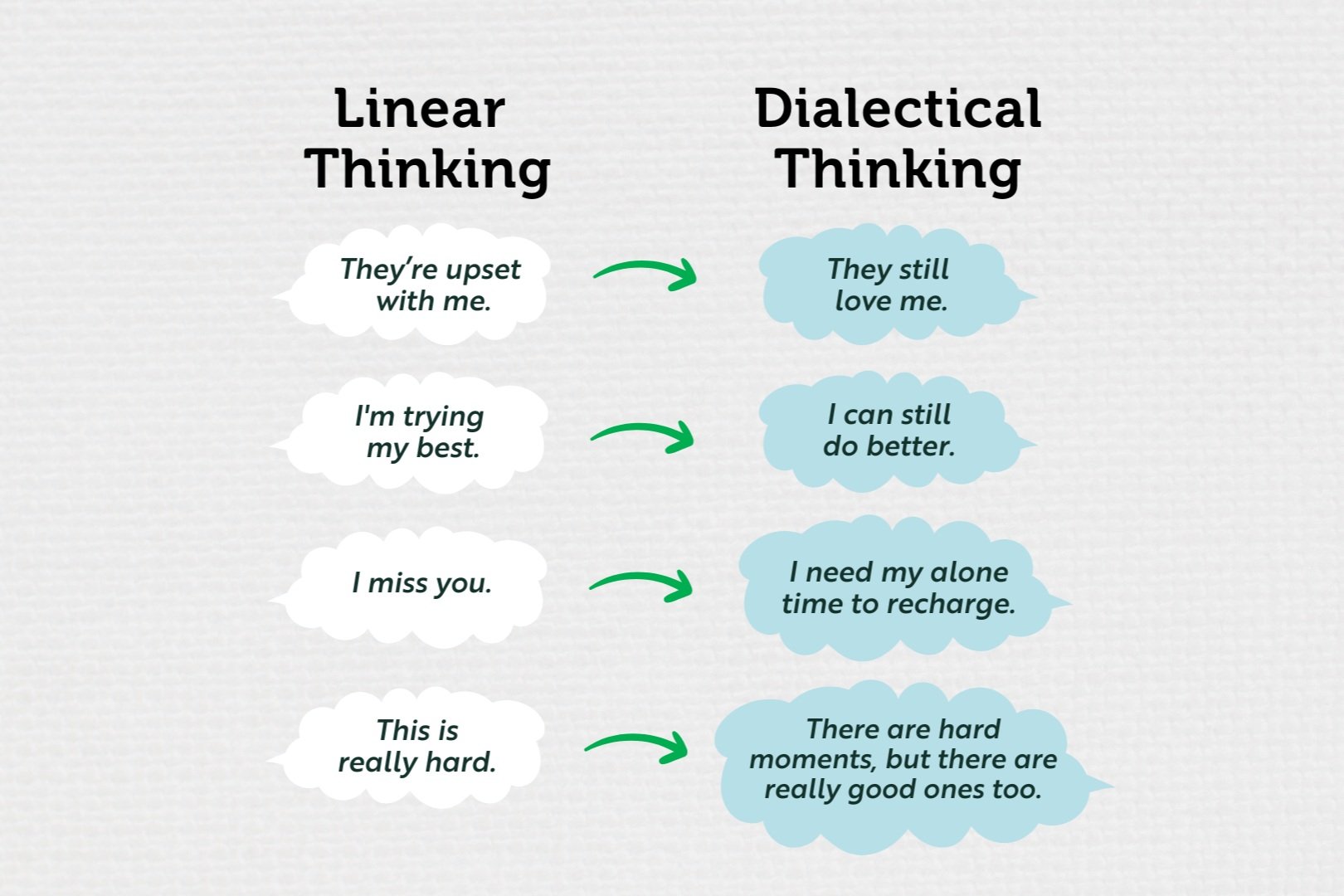Let’s Talk: How to improve your mental health through duality
Have you ever wondered how to feel your feelings without getting stuck? You’re not alone. Black and white thinking is a common challenge that can hinder us from living fuller lives. In the ongoing conversation around mental health and wellbeing, one helpful way to shift our thought patterns and create space for growth is by embracing duality.
What is duality?
Duality, as its name suggests, refers to two components, often with competing or contradicting opposites. For example, the duality of good and evil, peace and war, love and hate, and happy and sad. However, contrary to what most people may think, these two opposing forces do not have to reject each other. In fact, they can coexist and even be complementary.
These opposites balance each other like the dual wings of a butterfly or two sides of the same coin. Duality conveys an important teaching that our life is made up of a balanced interaction of competing opposites. Too much of one thing disturbs this balance and may cause harm. Too much light can blind us, too much heat can burn us, and too much love can suffocate us.
The benefits of duality
Duality can help improve mental health and quality of life. Knowing that everything in life exists on a continuum with opposite extremes prepares us for uncertainties and helps us come to peace with undesirable outcomes. In any given situation, we know that we are faced with the possibility of the opposite happening, and we can take actions accordingly to best navigate the situation.
Embracing duality can help balance the contradictions in life to achieve harmony. More than one truth can exist at the same time, even though they may be contradicting each other. For instance, a person can have moments of happiness while going through intense grief.
Duality challenges extreme black and white thinking. It replaces “this or that” thinking with “this and that” thinking. We can love and hate someone or laugh and cry at the same time. You may have experienced these mixed feelings before.
“Duality challenges extreme black and white thinking. It replaces ‘this or that’ thinking with ‘this and that’ thinking.”
Ultimately, duality helps us to appreciate life. Nothing would be valuable if there was nothing to compare its value to. We need sadness to appreciate happiness, anger to appreciate calmness, and fear to appreciate safety. In each of our journeys, it is essential to look for light in the darkness as well as meaning in every challenge.
How to practice duality
Feel all the feelings. You are likely to experience multiple feelings at once. Embracing duality means that all of those feelings are valid and you get to choose how you will respond to those feelings. Embracing duality allows us to empathize and accept without judging conflicting emotions and behaviors.
Explore all of the options. Once you accept that more than one truth can exist at the same time, you have also opened the door to a world of possibilities. You are now ready to explore all parts of yourself, ideas, beliefs, experiences and feelings that you did not think could co-exist.
Accept the negative. Often, our gut reaction is to reject negative experiences, but without the negative we can’t enjoy the positive. Similar to how a lotus is born and grows in muddy water, our experiences – even the toughest challenges – help us to grow.
Duality in the helping field
No matter how fulfilling this field can be, it is not an easy one, and because of this we are all highly susceptible to burnout, fatigue and vicarious trauma that can impact all areas of our personal lives.
This is a perfect example of duality: some parts of our work are wonderful, and others are devastating. We can love our work and at times hate it. We feel care and empathy for the people we serve, and when we lose a client or are unable to help, this can be very painful and frustrating.
How to hold space and shift perspective
1. Name all the different feelings and thoughts that you are experiencing.
2. Notice black and white thinking about these thoughts and feelings.
For example, “I should not feel angry at this person because I am their support worker”, “I must be caring and empathic all the time or I am not a good caregiver.
3. Accept these seemingly conflicting feelings and thoughts by embracing duality with compassion and without judgement.
Everyone deserves access to the mental health supports they need. If you are looking for affordable therapy, please contact Community Connect YYC or connect with our Clinical team.



